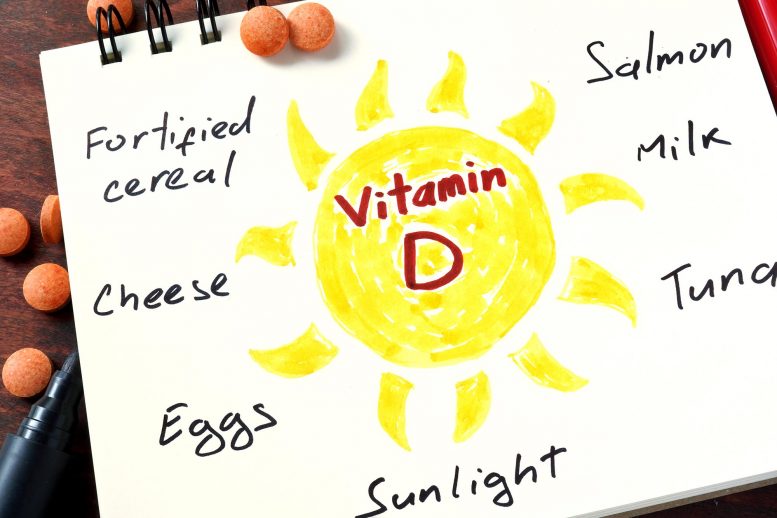
A study suggests that genetic evidence does not support vitamin D as a protective measure against COVID-19.
Observational studies have suggested that increased vitamin D levels may protect against COVID-19. However, these studies were inconclusive and possibly subject to confounding. A study published in PLOS Medicine by Guillaume Butler-Laporte and Tomoko Nakanishi at McGill University in Quebec, Canada, and colleagues suggests that genetic evidence does not support vitamin D as a protective measure against COVID-19.
The ability of vitamin D to protect against severe COVID-19 illness is of great interest to public health experts, but has limited supporting evidence. To assess the relationship between vitamin D levels and COVID-19 susceptibility and severity, researchers conducted a Mendelian randomization study using genetic variants strongly associated with increased vitamin D levels. The authors analyzed genetic variants of 4,134 individuals with COVID-19, and 1,284,876 without COVID-19, from 11 countries to determine whether genetic predisposition for higher vitamin D levels were associated with less-severe disease outcomes in people with COVID-19.
The results showed no evidence for an association between genetically predicted vitamin D levels and COVID-19 susceptibility, hospitalization, or severe disease, suggesting that raising circulating vitamin D levels through supplementation may not improve COVID-19 outcomes in the general population. However, the study had several important limitations, including that the research did not include individuals with vitamin D deficiency, and it remains possible that truly deficient patients may benefit from supplementation for COVID-19 related protection and outcomes. Additionally, the genetic variants were obtained only from individuals of European ancestry, so future studies will be needed to determine the relationship with COVID-19 outcomes in other populations.
According to the authors, “Vitamin D supplementation as a public health measure to improve outcomes is not supported by this study. Most importantly, our results suggest that investment in other therapeutic or preventative avenues should be prioritized for COVID-19 randomized clinical trials.”
Dr. Butler-Laporte notes, “Most vitamin D studies are very difficult to interpret since they cannot adjust for the known risk factors for severe Covid-19 (e.g. older age, institutionalization, having chronic diseases) which are also predictors of low vitamin D. Therefore, the best way to answer the question of the effect of vitamin D would be through randomized trials, but these are complex and resource intensive, and take a long time during a pandemic. Mendelian randomization can provide more clear insights into the role of risk factors like vitamin D because they can decrease potential bias from associated risk factors like institutionalization and chronic disease. In the past Mendelian randomization has consistently predicted results of large, expensive, and timely vitamin D trials. Here, this method does not show clear evidence that vitamin D supplementation would have a large effect on Covid-19 outcomes.”
Reference: “Vitamin D and COVID-19 susceptibility and severity in the COVID-19 Host Genetics Initiative: A Mendelian randomization study” by Guillaume Butler-Laporte, Tomoko Nakanishi, Vincent Mooser, David R. Morrison, Tala Abdullah, Olumide Adeleye, Noor Mamlouk, Nofar Kimchi, Zaman Afrasiabi, Nardin Rezk, Annarita Giliberti, Alessandra Renieri, Yiheng Chen, Sirui Zhou, Vincenzo Forgetta and J. Brent Richards, 1 June 2021, PLOS Medicine.
DOI: 10.1371/journal.pmed.1003605
Funding: The Richards research group is supported by the Canadian Institutes of Health Research (CIHR: 365825; 409511), the Lady Davis Institute of the Jewish General Hospital, the Canadian Foundation for Innovation, the NIH Foundation, Cancer Research UK, Genome Québec, the Public Health Agency of Canada and the Fonds de Recherche Québec Santé (FRQS). GBL is supported by the CIHR, and a joint scholarship from the FRQS and Québec’s Ministry of Health and Social Services. TN is supported by Research Fellowships of Japan Society for the Promotion of Science (JSPS) for Young Scientists and JSPS Overseas Challenge Program for Young Researchers. JBR is supported by a FRQS Clinical Research Scholarship. Support from Calcul Québec and Compute Canada is acknowledged. TwinsUK is funded by the Welcome Trust, Medical Research Council, European Union, the National Institute for Health Research (NIHR)-funded BioResource, Clinical Research Facility and Biomedical Research Centre based at Guy’s and St Thomas’ NHS Foundation Trust in partnership with King’s College London. VM is supported by the Canada Excellence Research Chair Program. The funders had no role in study design, data collection and analysis, decision to publish, or preparation of the manuscript.

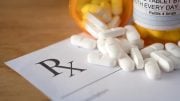

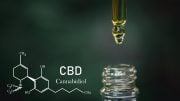


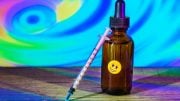

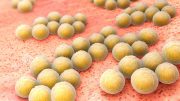
But….the science told us Vitamin D did work. Was science wrong? How could that possibly be?
Newest pilot study says 60,000iu Pulse Study does in fact lower inflammatory markers and reduces death significantly compared to standard of care, but yet you will not run that article.. Of course you will taught a study from Brazil that says a single dose of 200,000 iu when a patient is practically dead does not help and conclude that vitamin D does not work at all. I am tired of this garbage.
Contradictory scientific research findings have been coming at an alarming frequency these days. It’s high time such reports were regulated till conclusively proved
Simple answer, their’s no money with Vitamin D or Vitamin A , big pharma, a no no.
This is what you should talking about
Most relevant study yet is pointless and deceptive
https://jamanetwork.com/journals/jama/fullarticle/2776736
A review analysis o vit D
https://link.springer.com/article/10.1007/s40200-021-00775-6